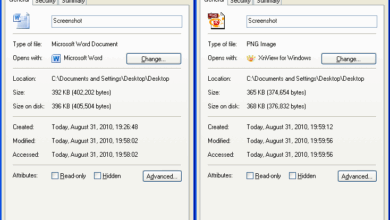How to book a hotel room for a wedding event?
How to book a hotel room for a wedding event? This question often marks the beginning of a delightful journey to plan one of the most memorable days in a couple’s life. Choosing the perfect venue is not just about aesthetics but involves careful consideration of location, amenities, and guest accessibility to ensure everyone can join in the celebration.
The process involves various steps, from selecting the ideal hotel that meets your needs to navigating through booking logistics and accommodating guests effectively. Understanding the importance of contracts and policies is crucial, as it protects your interests when planning such a significant event.
Choosing the Right Hotel for a Wedding Event

Selecting the perfect hotel for a wedding event is essential to ensuring that the day goes smoothly and memorably. The right venue can significantly enhance the experience for both the couple and their guests, providing a beautiful backdrop and necessary services that cater to various needs. Understanding how to evaluate different options will help in making an informed decision that aligns with the couple’s vision and budget.When considering a hotel for a wedding, several key factors come into play.
Comparing hotel prices can save you a significant amount of money on your trip. To do this effectively, utilize various booking platforms and refer to guides that explain the process, like How to compare hotel prices across different booking websites?. This approach will ensure that you get the best deal available for your desired stay.
The location, accessibility, available amenities, and overall atmosphere of the hotel are crucial elements that can affect both the planning process and the event itself. Each of these factors contributes significantly to the comfort and satisfaction of guests, which is why careful consideration is paramount.
Factors in Selecting a Hotel
The evaluation of a hotel for hosting a wedding should encompass several important aspects to ensure that it meets all necessary requirements. Each factor plays a role in the overall success of the event and should be thoroughly assessed.
- Location and Accessibility: The hotel should be located conveniently for guests, ideally close to the wedding venue or within easy reach of public transportation. A central location can facilitate easier travel and reduce the stress of logistics, especially for out-of-town guests.
- Amenities: Amenities offered by the hotel can enhance the wedding experience. It’s essential to examine available catering services, decoration options, and accommodations for guests. Some hotels may also offer packages that include wedding planning services, which can simplify the planning process significantly.
- Parking Facilities: Adequate parking is critical for guest convenience. A hotel that provides ample parking space or valet services can alleviate potential issues related to transportation and accessibility. If parking is scarce, this could deter guests from attending.
- Atmosphere and Décor: The aesthetic appeal of the hotel should align with the couple’s vision for their wedding. It’s beneficial to visit the hotel and visualize how it would look on the wedding day, keeping in mind the type of décor and theme that will be implemented.
- Capacity and Layout: Understanding the hotel’s capacity to accommodate guests is vital. The space should be able to comfortably fit the number of attendees, allowing for easy movement and mingling. Additionally, the layout should be conducive to the flow of the event, including ceremony, reception, and any other activities planned.
“The right hotel can transform a wedding into an unforgettable experience, making every moment magical for the couple and their guests.”
When planning your stay, it’s crucial to assess the hotel’s cleanliness and hygiene ratings. You can easily find this information by visiting resources that specialize in hotel reviews, such as How to check cleanliness and hygiene ratings of hotels?. This will help ensure that your accommodation meets health standards, providing peace of mind during your travels.
When evaluating potential hotels, it is beneficial to compile a checklist of these factors to compare options effectively. By doing so, couples can ensure that they select a venue that not only meets their needs but also helps create lasting memories on their special day.
Booking Process for Hotel Rooms
Booking hotel rooms for a wedding event can be a straightforward process when approached methodically. Understanding the steps to take, the information needed, and how to negotiate can significantly enhance the experience for both the couple and their guests. Here’s a detailed look into the booking process that ensures a smooth and successful arrangement for your wedding guests.
Steps to Contact Hotels for Booking
When beginning the booking process, it’s essential to be organized and thorough. Start by creating a list of potential hotels based on your earlier research. Once you have a shortlist, follow these steps to effectively contact each hotel:
- Gather Necessary Information: Know the number of guests, the dates of stay, and any special requests or amenities you might need, such as shuttle services or breakfast options.
- Reach Out to Hotels: Contact the hotels either through their website, by email, or via phone. Direct communication often yields better results.
- Speak to the Right Person: Request to speak with a sales manager or a group booking coordinator, as they are better equipped to handle wedding-related inquiries.
- Be Clear and Concise: Clearly state your needs, including the number of rooms, the types of accommodations required, and any specific preferences.
Negotiating Group Rates for Wedding Guests, How to book a hotel room for a wedding event?
Securing a group rate can provide significant savings for your guests and is a common practice for wedding events. Here’s how to effectively negotiate these rates:
- Research Comparable Rates: Before negotiating, check the rates of nearby hotels for similar dates to have leverage during discussions.
- Ask About Discounts: Inquire if the hotel offers any discounts for weddings, such as complimentary rooms for the couple or reduced rates for large bookings.
- Emphasize Commitment: Let the hotel know the expected number of bookings and express your intention to choose them if the terms are favorable. Hotels are often willing to negotiate to secure a larger block of rooms.
- Request Extra Perks: In addition to lower rates, ask for additional benefits such as free parking, breakfast, or access to hotel facilities for guests.
Necessary Information for Making Bookings
When making bookings, having the right information on hand can streamline the process and ensure accuracy. Here is a list of essential details to prepare:
- Wedding Date: Confirm the exact dates to avoid any booking errors.
- Room Types Required: Specify the types of rooms needed, such as single, double, or suites, and the expected occupancy.
- Total Number of Rooms: Clearly communicate how many rooms are needed for guests and if you require a specific block of rooms.
- Payment Information: Be ready to provide payment methods or deposit information as needed to secure the booking.
- Contact Information: Ensure you have the primary contact information for the couple or a designated planner to handle any follow-up communication.
Planning for Guest Accommodations: How To Book A Hotel Room For A Wedding Event?

When organizing a wedding event, ensuring that your guests have suitable accommodations is paramount. A well-executed lodging plan can significantly enhance the overall experience for attendees, alleviating any stress associated with travel and lodging logistics. To achieve this, a systematic approach to planning guest accommodations is necessary, focusing on guest needs, preferences, and special circumstances.
Checklist for Room Types and Quantities
Creating a detailed checklist for room types and quantities based on your guest list helps streamline the accommodation process. This ensures that you meet the needs of all attendees effectively. Here are the key considerations when preparing your checklist:
- Guest List Analysis: Start by compiling a comprehensive guest list, noting the number of attendees and their relationship to the couple. This helps in predicting accommodation needs.
- Room Type Specification: Identify the types of rooms required, such as single, double, or suites, based on your guest demographics. For instance, families may require larger rooms or suites, while couples might prefer doubles.
- Quantifying Rooms: Estimate how many of each room type you need by factoring in the number of guests and their preferences, ensuring to leave a buffer for last-minute additions.
- Booking Blocks: Set up a room block with the hotel, reserving the required number of rooms at a group rate to ensure availability and affordability for your guests.
Managing Special Requests and Requirements
Many guests may have unique requirements, such as accessibility needs, late check-ins, or pet accommodations. Effectively managing these special requests is crucial for ensuring comfort and satisfaction.
- Accessibility Needs: Confirm that the chosen hotel can accommodate guests with disabilities, including accessible rooms and facilities.
- Dietary Restrictions: Record any dietary concerns or restrictions from guests who may need special meal options during their stay and communicate this with the hotel.
- Communicating Special Arrangements: Encourage guests to inform you of any special requests ahead of time so that you can coordinate with the hotel to meet these needs.
- Confirming Arrangements: Follow up with the hotel staff to verify that all special requests have been noted and arranged before guests arrive.
Communicating Hotel Details to Guests
Clear communication regarding hotel accommodations can enhance the guest experience, providing all necessary information to facilitate a smooth stay.
- Information Distribution: Create a detailed information packet or digital guide that includes hotel details, check-in procedures, transportation options, and amenities available at the hotel.
- Utilizing Invitations: Include hotel information in wedding invitations or on the wedding website, making it easy for guests to access it.
- Personal Follow-Ups: Consider sending a follow-up email or message to guests a few weeks before the event, reminding them of the accommodations and inviting any questions.
- On-site Coordination: Designate someone to assist with any last-minute accommodation issues or inquiries during the event, providing a personal touch and support for your guests.
Reviewing Hotel Contracts and Policies
Understanding the intricacies of hotel contracts and policies is crucial when booking accommodations for a wedding event. These documents Artikel the responsibilities and expectations of both the hotel and the client, ensuring a smooth experience for everyone involved. A thorough review can prevent misunderstandings and lead to a successful event.
Critical Elements of Hotel Contracts
When delving into hotel contracts, certain elements warrant close scrutiny to ensure that the terms align with your needs. Key aspects to focus on include:
- Room Blocks: Confirm the number of rooms reserved and the expiration date for booking them.
- Pricing and Discounts: Review the rates offered and any potential discounts for bulk bookings. Ensure clarity on any hidden fees.
- Cancellation Policy: Understand the conditions under which you can cancel the reservation and the financial implications.
- Check-in and Check-out Times: Verify the standard times to avoid inconveniences for you and your guests.
- Food and Beverage Minimums: Check if there are requirements for catering services and minimum spending thresholds.
Cancellation Policies and Deposit Requirements
Cancellation policies are pivotal when planning a wedding event. Terms vary significantly between hotels, and understanding these can save you from unexpected losses. It’s essential to review:
- Deposit Amount: Most hotels require a deposit upon signing the contract. This amount should reflect what you can afford and be clearly stated in the contract.
- Refundable and Non-Refundable Deposits: Determine if the deposit is refundable in case of cancellation and any deadlines associated with that.
- Cancellation Window: Familiarize yourself with the timeframe allowed for cancellations without penalties. Some hotels may require notice several months in advance.
Liability and Insurance Options
Liability and insurance are crucial considerations for any wedding event. Understanding these aspects can protect you and your guests from unforeseen circumstances. Here are the key components to evaluate:
- Liability Coverage: Check if the hotel has general liability insurance covering potential damages or injuries that may occur during the event.
- Client Liability: Be aware of the responsibilities you may hold in case of damages to the property or other liabilities.
- Event Insurance: Consider purchasing additional event insurance for coverage against cancellations, liability claims, and other risks associated with hosting a wedding.
It is essential to ensure that both parties are protected by understanding the liability and insurance coverage applicable to the wedding event.









